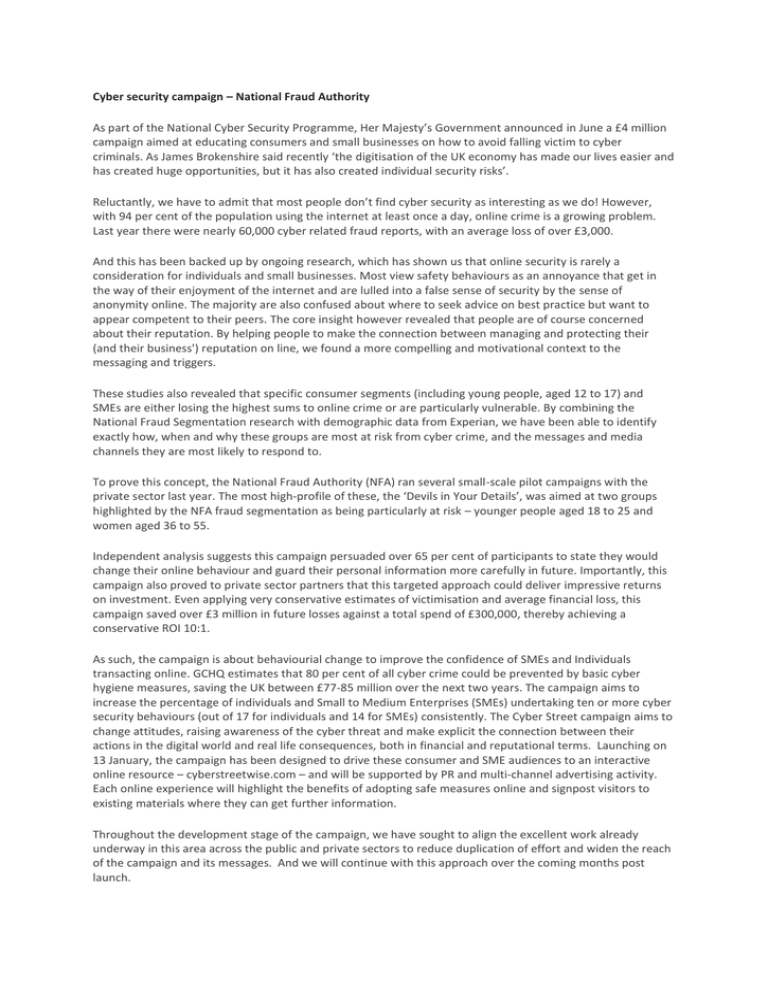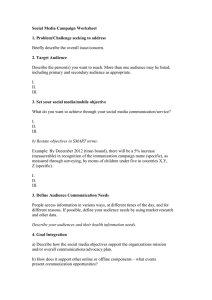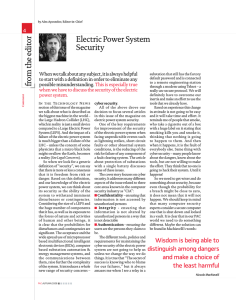Cyber security campaign – National Fraud Authority
advertisement

Cyber security campaign – National Fraud Authority As part of the National Cyber Security Programme, Her Majesty’s Government announced in June a £4 million campaign aimed at educating consumers and small businesses on how to avoid falling victim to cyber criminals. As James Brokenshire said recently ‘the digitisation of the UK economy has made our lives easier and has created huge opportunities, but it has also created individual security risks’. Reluctantly, we have to admit that most people don’t find cyber security as interesting as we do! However, with 94 per cent of the population using the internet at least once a day, online crime is a growing problem. Last year there were nearly 60,000 cyber related fraud reports, with an average loss of over £3,000. And this has been backed up by ongoing research, which has shown us that online security is rarely a consideration for individuals and small businesses. Most view safety behaviours as an annoyance that get in the way of their enjoyment of the internet and are lulled into a false sense of security by the sense of anonymity online. The majority are also confused about where to seek advice on best practice but want to appear competent to their peers. The core insight however revealed that people are of course concerned about their reputation. By helping people to make the connection between managing and protecting their (and their business') reputation on line, we found a more compelling and motivational context to the messaging and triggers. These studies also revealed that specific consumer segments (including young people, aged 12 to 17) and SMEs are either losing the highest sums to online crime or are particularly vulnerable. By combining the National Fraud Segmentation research with demographic data from Experian, we have been able to identify exactly how, when and why these groups are most at risk from cyber crime, and the messages and media channels they are most likely to respond to. To prove this concept, the National Fraud Authority (NFA) ran several small-scale pilot campaigns with the private sector last year. The most high-profile of these, the ‘Devils in Your Details’, was aimed at two groups highlighted by the NFA fraud segmentation as being particularly at risk – younger people aged 18 to 25 and women aged 36 to 55. Independent analysis suggests this campaign persuaded over 65 per cent of participants to state they would change their online behaviour and guard their personal information more carefully in future. Importantly, this campaign also proved to private sector partners that this targeted approach could deliver impressive returns on investment. Even applying very conservative estimates of victimisation and average financial loss, this campaign saved over £3 million in future losses against a total spend of £300,000, thereby achieving a conservative ROI 10:1. As such, the campaign is about behaviourial change to improve the confidence of SMEs and Individuals transacting online. GCHQ estimates that 80 per cent of all cyber crime could be prevented by basic cyber hygiene measures, saving the UK between £77-85 million over the next two years. The campaign aims to increase the percentage of individuals and Small to Medium Enterprises (SMEs) undertaking ten or more cyber security behaviours (out of 17 for individuals and 14 for SMEs) consistently. The Cyber Street campaign aims to change attitudes, raising awareness of the cyber threat and make explicit the connection between their actions in the digital world and real life consequences, both in financial and reputational terms. Launching on 13 January, the campaign has been designed to drive these consumer and SME audiences to an interactive online resource – cyberstreetwise.com – and will be supported by PR and multi-channel advertising activity. Each online experience will highlight the benefits of adopting safe measures online and signpost visitors to existing materials where they can get further information. Throughout the development stage of the campaign, we have sought to align the excellent work already underway in this area across the public and private sectors to reduce duplication of effort and widen the reach of the campaign and its messages. And we will continue with this approach over the coming months post launch. We very much look forward to the launch of cyberstreetwise.com and welcome support from our colleagues at The National Archives to help us promote the campaign. If you would like to find out more, please do get in touch with one of the IACSEP team.







